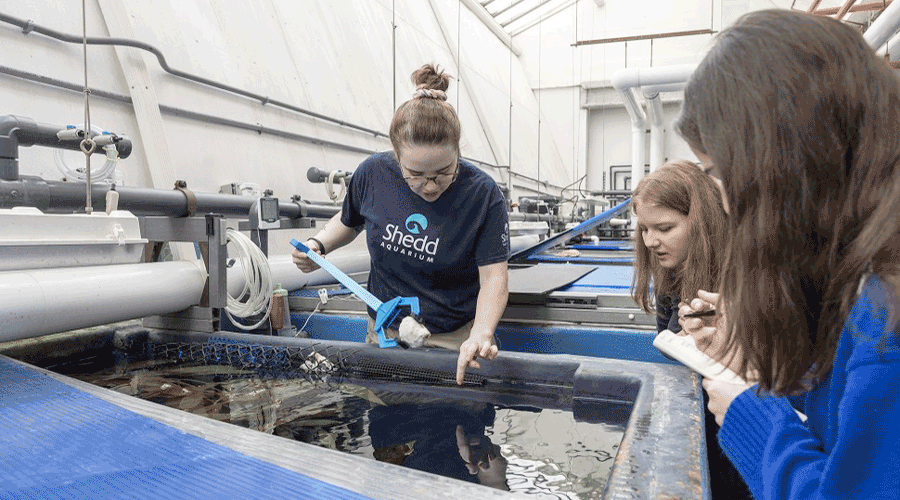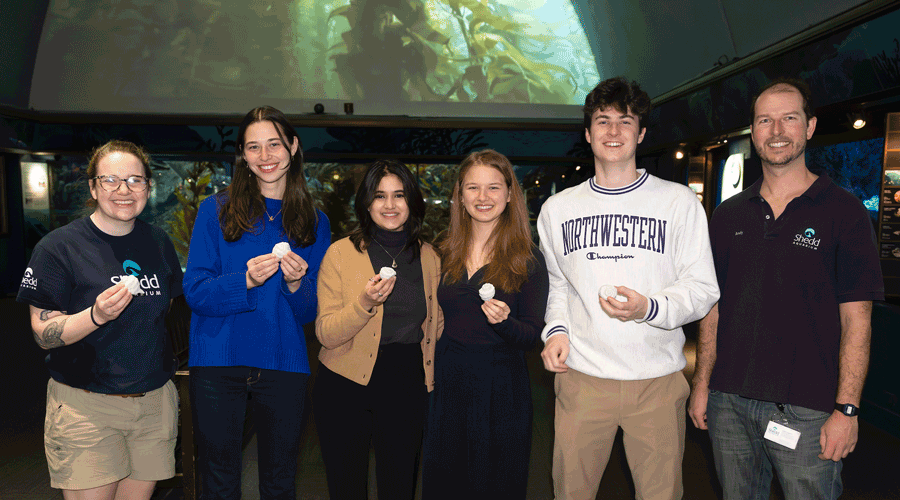GastropopsA group of students designed a snackable shell, dubbed a "GastroPop," to help inform strategies for restoration and conservation.
A team of Northwestern engineering students developed and tested artificial snails, dubbed "GastroPops," in collaboration with researchers at the Shedd Aquarium. This innovative project aims to address the declining populations of queen conch, a crucial species in coral reef and seagrass ecosystems, while providing insights into predation patterns and habitat quality.
Problem
Queen conchs, crucial for the health of coral reefs and seagrass beds, are under threat due to overfishing, predation, and habitat loss exacerbated by climate change. The conch’s juvenile stage is particularly vulnerable to predators because of their weaker and thinner shells, complicating recovery efforts. The project's goal is to find less predation-prone areas to aid in the recovery and conservation of queen conchs.
Solution
The solution involved designing a biodegradable artificial snail, the "GastroPop," made from ground oyster shells and a seafood blend, providing a novel enrichment tool for marine life. These artificial snails were tested in different habitats to identify areas with reduced predation. The project incorporated knowledge from enrichment activities conducted with Caribbean spiny lobsters and Japanese spider crabs at Shedd Aquarium to develop the final product.
Current Status
In mid-May, the students produced and packed 90 handmade shells and bait, traveling to Miami for a field test aboard the research vessel R/V Coral Reef II. They conducted tests in various habitats to assess the effectiveness of their bait. The fieldwork confirmed the functionality of the GastroPops and highlighted the natural integration of the shells into the environment. The students plan to continue their research, with one member aiming to apply for a Fulbright scholarship to further study marine life.
Read more in Northwestern Now.


